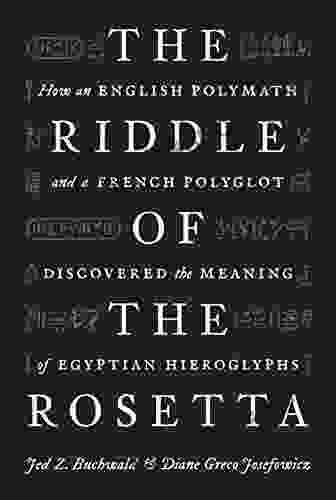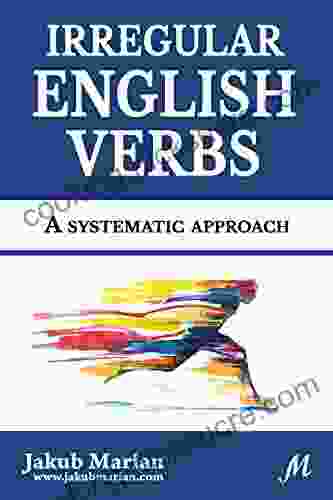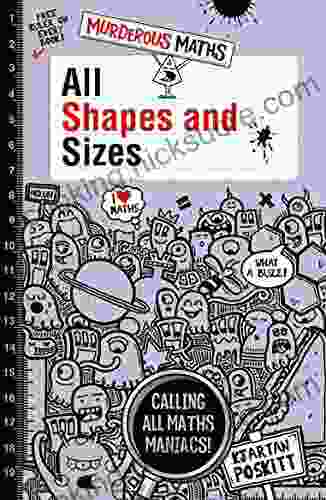Irregular English Verbs: A Comprehensive Guide to a Systematic Approach

The English language is renowned for its extensive lexicon and intricate grammar, with irregular verbs posing a formidable challenge to learners. These verbs deviate from the conventional patterns of regular verbs, often exhibiting unique conjugations that can seem unpredictable. However, by adopting a systematic approach, learners can effectively master these irregular verbs, unlocking the gate to clear and confident English communication.
5 out of 5
| Language | : | English |
| File size | : | 371 KB |
| Text-to-Speech | : | Enabled |
| Screen Reader | : | Supported |
| Enhanced typesetting | : | Enabled |
| Print length | : | 104 pages |
| Lending | : | Enabled |
Understanding Irregular Verbs
Irregular verbs are a unique class of verbs that do not follow the standard patterns of conjugation. Unlike regular verbs, which typically form their past tense and past participle by adding "-ed" (e.g., "walk" becomes "walked"),irregular verbs undergo a variety of transformations. For instance, the past tense of "write" is "wrote," while the past participle of "eat" is "eaten."
The irregularity of these verbs stems from their historical evolution. Many irregular verbs have retained their original forms from Old English or other ancestral languages, leading to their deviation from modern English grammar rules. This aspect makes them challenging to memorize but, with a methodical approach, their patterns can be effectively learned.
A Systematic Approach to Mastering Irregular Verbs
To successfully master irregular verbs, it is essential to adopt a systematic approach that involves the following steps:
1. Categorization and Grouping
The first step is to categorize irregular verbs based on their conjugation patterns. This can be done by grouping verbs with similar vowel changes or consonant alternations. For example, verbs like "sing" (sang),"ring" (rang),and "spin" (span) all undergo a vowel change from "i" to "a" in the past tense. By grouping these verbs together, learners can identify patterns and establish a framework for memorization.
2. Memorization Techniques
Once verbs have been categorized, it is essential to employ effective memorization techniques. This can involve using flashcards, creating tables or charts, or utilizing spaced repetition software. By repeatedly reviewing the conjugations in various contexts, learners can strengthen their memory and recall of the irregular forms.
3. Contextual Practice
Beyond memorization, it is important to practice using irregular verbs in context. This can be done through writing exercises, speaking activities, or listening to authentic English conversations. By immersing themselves in the language, learners can develop a natural sense of when and how to use irregular verbs correctly.
4. Regular Review and Reinforcement
To maintain proficiency and prevent forgetting, it is crucial to regularly review and reinforce the irregular verbs that have been learned. This can be done through quizzes, practice exercises, or simply by incorporating them into daily writing and speaking. Consistent repetition helps strengthen neural pathways and ensures that the information is retained over time.
Types of Irregular Verbs
Irregular verbs in English can be further classified into various types based on their specific conjugation patterns. Some common types include:
- Class 1: Verbs that change their vowel in the past tense but retain the same form in the past participle (e.g., "write" - "wrote" - "written")
- Class 2: Verbs that change their vowel in both the past tense and past participle (e.g., "sing" - "sang" - "sung")
- Class 3: Verbs that exhibit vowel changes in the past tense and consonant alternations in the past participle (e.g., "keep" - "kept" - "kept")
- Class 4: Verbs that remain unchanged in all three forms (e.g., "cut" - "cut" - "cut")
Mastering irregular verbs is a fundamental aspect of English language proficiency. By adopting a systematic approach involving categorization, memorization techniques, contextual practice, and regular review, learners can effectively navigate the complexities of these verbs. With patience, perseverance, and a commitment to continuous learning, individuals can unlock the power of irregular verbs and elevate their English communication skills to new heights.
Remember, language learning is an ongoing journey. Embrace the challenge of irregular verbs and approach them with a sense of curiosity and exploration. By incorporating these strategies into your learning routine, you can conquer the complexities of English grammar and communicate with confidence and clarity.
5 out of 5
| Language | : | English |
| File size | : | 371 KB |
| Text-to-Speech | : | Enabled |
| Screen Reader | : | Supported |
| Enhanced typesetting | : | Enabled |
| Print length | : | 104 pages |
| Lending | : | Enabled |
Do you want to contribute by writing guest posts on this blog?
Please contact us and send us a resume of previous articles that you have written.
 Fiction
Fiction Non Fiction
Non Fiction Romance
Romance Mystery
Mystery Thriller
Thriller SciFi
SciFi Fantasy
Fantasy Horror
Horror Biography
Biography Selfhelp
Selfhelp Business
Business History
History Classics
Classics Poetry
Poetry Childrens
Childrens Young Adult
Young Adult Educational
Educational Cooking
Cooking Travel
Travel Lifestyle
Lifestyle Spirituality
Spirituality Health
Health Fitness
Fitness Technology
Technology Science
Science Arts
Arts Crafts
Crafts DIY
DIY Gardening
Gardening Petcare
Petcare Buster Benson
Buster Benson Jordan Romero
Jordan Romero Lars Muhl
Lars Muhl Paulette F C Steeves
Paulette F C Steeves Daniel Shiffman
Daniel Shiffman Jim Shea
Jim Shea David W Brown
David W Brown James A Middleton
James A Middleton Rob Taylor
Rob Taylor Peter May
Peter May D Harvey
D Harvey Kristin Briney
Kristin Briney Marcus Felson
Marcus Felson Rachael Chapman
Rachael Chapman Dot Edu
Dot Edu George Mahood
George Mahood Martin Rooney
Martin Rooney Kindra Gordon
Kindra Gordon Janet Wolanin Alexander
Janet Wolanin Alexander Mary Jane Sterling
Mary Jane Sterling Ronald W Doerfler
Ronald W Doerfler Bob Mayer
Bob Mayer Andrea Bemis
Andrea Bemis George Christian Pappas
George Christian Pappas Donald S Murray
Donald S Murray Catherine Montgomery
Catherine Montgomery William Gerin
William Gerin Ben Orlin
Ben Orlin Jefferson Hawkins
Jefferson Hawkins Joe Wells
Joe Wells Arous Brocken
Arous Brocken Jed Z Buchwald
Jed Z Buchwald Benedict Carey
Benedict Carey Mara Vorhees
Mara Vorhees Francesca Zappia
Francesca Zappia Hampton Sides
Hampton Sides Steven Arms
Steven Arms Pliny The Elder
Pliny The Elder Ronald J Harshbarger
Ronald J Harshbarger Richard Bellman
Richard Bellman Trish Allison
Trish Allison Guillermo Ferrara
Guillermo Ferrara Margaret Thorsborne
Margaret Thorsborne Namina Forna
Namina Forna Joseph Luzzi
Joseph Luzzi V E Schwab
V E Schwab Elizabeth S Meckes
Elizabeth S Meckes Wildlife Trusts
Wildlife Trusts Morihei Ueshiba
Morihei Ueshiba Rashers Tierney
Rashers Tierney Gregory Curtis
Gregory Curtis James Lyons Weiler
James Lyons Weiler Rob Summers
Rob Summers Andrew Brown
Andrew Brown Lena Shev
Lena Shev Jason Zemcik
Jason Zemcik Josh Tabor
Josh Tabor Matt Richtel
Matt Richtel W J Hendry
W J Hendry Gabby Rivera
Gabby Rivera Rick Westhead
Rick Westhead Future Publishing
Future Publishing Patrick W Galbraith
Patrick W Galbraith Steve Scott
Steve Scott Joseph Bruchac
Joseph Bruchac Bhavesh Mamtani
Bhavesh Mamtani 18th Edition Kindle Edition
18th Edition Kindle Edition Robin Satty
Robin Satty Michael Judge
Michael Judge Christine Heppermann
Christine Heppermann James E Wisher
James E Wisher David Alloway
David Alloway Tom Siegfried
Tom Siegfried Oliver Perkins
Oliver Perkins Sid Thatte
Sid Thatte Anna Holmwood
Anna Holmwood Kiersten White
Kiersten White Ian O Connor
Ian O Connor Jenna Miscavige Hill
Jenna Miscavige Hill Deaver Brown
Deaver Brown Jamie Ivey
Jamie Ivey Mike Cyra
Mike Cyra Terry Ann Williams Richard
Terry Ann Williams Richard Ruby Walker
Ruby Walker Mike Gauthier
Mike Gauthier Julie Powers
Julie Powers Thomas Berger
Thomas Berger Mark M Meerschaert
Mark M Meerschaert Marvin L Bittinger
Marvin L Bittinger Susanna Kearsley
Susanna Kearsley Laura Lincoln Maitland
Laura Lincoln Maitland Sunny Anderson
Sunny Anderson Kristine Papin Morris
Kristine Papin Morris Christopher Sommer
Christopher Sommer Charles Szypszak
Charles Szypszak Course Hero
Course Hero Kailin Gow
Kailin Gow Brian C Muraresku
Brian C Muraresku Laura Domino
Laura Domino Elizabeth Marshall Thomas
Elizabeth Marshall Thomas Jakub Marian
Jakub Marian Lundy Bancroft
Lundy Bancroft Victoria Schwab
Victoria Schwab Bruce Bowlen
Bruce Bowlen Vertamae Smart Grosvenor
Vertamae Smart Grosvenor Jeremy Freese
Jeremy Freese Jeff Davis
Jeff Davis Richard Bolstad
Richard Bolstad Carmen Micsa
Carmen Micsa Galit Shmueli
Galit Shmueli Craig Custance
Craig Custance Brad Schoenfeld
Brad Schoenfeld Ken Blanchard
Ken Blanchard Caren Van Slyke
Caren Van Slyke Melissa Reynolds
Melissa Reynolds Mira Kirshenbaum
Mira Kirshenbaum Laurie Ann Thompson
Laurie Ann Thompson Baz Thompson
Baz Thompson James Turnbull
James Turnbull Andrea Wachter
Andrea Wachter Terence Callery
Terence Callery Linda Anne Silvestri
Linda Anne Silvestri Jennifer Blair
Jennifer Blair Doug Swisher
Doug Swisher Roberto Pedreira
Roberto Pedreira Robert B Yonaitis
Robert B Yonaitis Sara Manning Peskin
Sara Manning Peskin Richard Maury
Richard Maury Jack Hunnicutt
Jack Hunnicutt Andrew Blauner
Andrew Blauner Donna Bollinger
Donna Bollinger Andrew Duncan
Andrew Duncan Jessica Mccrory Calarco
Jessica Mccrory Calarco Jacqueline Edmondson
Jacqueline Edmondson Becky Lomax
Becky Lomax Peter Boardman
Peter Boardman Loren Pope
Loren Pope Carrie Ryan
Carrie Ryan Lauren Daniels
Lauren Daniels James Dodson
James Dodson Shaun Assael
Shaun Assael Jim Apfelbaum
Jim Apfelbaum Kathleen Dean Moore
Kathleen Dean Moore Milo Stewart
Milo Stewart Chris Lilly
Chris Lilly Nick Peters
Nick Peters H Spencer Lewis
H Spencer Lewis Ben Doughty
Ben Doughty Keith Sutton
Keith Sutton Joe Cavallaro
Joe Cavallaro Stephan J Guyenet
Stephan J Guyenet David Montgomery
David Montgomery Kristen Thone
Kristen Thone Malinda Lo
Malinda Lo Sean Pidgeon
Sean Pidgeon Adam Mansbach
Adam Mansbach Stuart L Kaplan M D
Stuart L Kaplan M D John Gilbert
John Gilbert Necoco
Necoco Gerald A Moore Sr
Gerald A Moore Sr Christina Kim
Christina Kim Melissa Caughey
Melissa Caughey L Michele Issel
L Michele Issel Gemma Rogers
Gemma Rogers Wolfgang Hohlbein
Wolfgang Hohlbein J E Lendon
J E Lendon William F Sensakovic
William F Sensakovic Zak Mt Standridge
Zak Mt Standridge Cliff Wilson
Cliff Wilson Tim Ryan
Tim Ryan Sudhir Shirwadkar
Sudhir Shirwadkar Richard P Feynman
Richard P Feynman Lonely Planet
Lonely Planet James Rebanks
James Rebanks Ewen Levick
Ewen Levick Karen Tranberg Hansen
Karen Tranberg Hansen Tracy Townsend
Tracy Townsend Bridget Portmann
Bridget Portmann Rolf Potts
Rolf Potts Greg Ruth
Greg Ruth Bobby Orr
Bobby Orr Gabrielle Coleman
Gabrielle Coleman Brenda Reed Pilcher
Brenda Reed Pilcher Candace Clark Trinchieri
Candace Clark Trinchieri Marta Obiols Llistar
Marta Obiols Llistar Steven H Weintraub
Steven H Weintraub Pat Wray
Pat Wray Andrej Spec
Andrej Spec Patsy M Lightbown
Patsy M Lightbown Richard N Aufmann
Richard N Aufmann Chiara Marletto
Chiara Marletto Jay Annelli
Jay Annelli Simon Garfield
Simon Garfield Neil Oliver
Neil Oliver Robert H Miller
Robert H Miller Prasad Raju V V N R Pathapati
Prasad Raju V V N R Pathapati A J Carlisle
A J Carlisle Mason Deaver
Mason Deaver Michael S Malone
Michael S Malone Hasok Chang
Hasok Chang Whitney Nelson
Whitney Nelson Joey Miller Msw Lcsw
Joey Miller Msw Lcsw Elizabeth Clor
Elizabeth Clor Tom Lecompte
Tom Lecompte David Borgenicht
David Borgenicht J David Logan
J David Logan Roger Atwood
Roger Atwood John Bantin
John Bantin Sarah Outen
Sarah Outen Barbara Merry
Barbara Merry Ian Tattersall
Ian Tattersall Leigh Bardugo
Leigh Bardugo Suzy Ashworth
Suzy Ashworth Eugene Raikhel
Eugene Raikhel Anne Holler
Anne Holler David Scott
David Scott James Fox
James Fox Wendy Heard
Wendy Heard Bernard A Chavis
Bernard A Chavis Mandy Baggot
Mandy Baggot Rita Jablonski
Rita Jablonski Michael Anderle
Michael Anderle Clayton Everline
Clayton Everline Bruce Mcnall
Bruce Mcnall Patrick Mouratoglou
Patrick Mouratoglou Michael Hermann
Michael Hermann Annette Curtis Klause
Annette Curtis Klause David Abram
David Abram Jonathan Clements
Jonathan Clements Brock Eide
Brock Eide S Fatou
S Fatou Joelle Charbonneau
Joelle Charbonneau Roland Martin
Roland Martin Department Of Defense
Department Of Defense Mark Mcconville
Mark Mcconville Michael T Nygard
Michael T Nygard Matt Fulks
Matt Fulks Vin T Sparano
Vin T Sparano Victoria Allman
Victoria Allman Will Thornton
Will Thornton Robin Hobb
Robin Hobb Antonio Iturbe
Antonio Iturbe Connie J Wells
Connie J Wells Andrea Cataldo
Andrea Cataldo George Hospodar
George Hospodar Dayton O Hyde
Dayton O Hyde James Mallory
James Mallory Serena Valentino
Serena Valentino Andrew Goliszek
Andrew Goliszek Ricky Moore
Ricky Moore Arianna Astuni
Arianna Astuni Brian Azzarello
Brian Azzarello Nancy B Rapoport
Nancy B Rapoport Robert Bacal
Robert Bacal Sarah Castille
Sarah Castille Rachel Atwood
Rachel Atwood Andrea Cremer
Andrea Cremer Aldous Huxley
Aldous Huxley Ed Willes
Ed Willes Luke Rosiak
Luke Rosiak Mary Keith Piasecki
Mary Keith Piasecki Laurie Seale
Laurie Seale Thomas Watson
Thomas Watson Elizabeth S Trafalgar
Elizabeth S Trafalgar Richard Heinberg
Richard Heinberg Jaak Panksepp
Jaak Panksepp Giada De Laurentiis
Giada De Laurentiis Ola Ola
Ola Ola Rick Heard
Rick Heard Jack Purdum
Jack Purdum Tim Wharnsby
Tim Wharnsby Nick Marshall
Nick Marshall Susan Williams White
Susan Williams White April Vahle Hamel
April Vahle Hamel Harriet Brown
Harriet Brown Raymond Coppinger
Raymond Coppinger Rachel Hawkins
Rachel Hawkins Paul Stamets
Paul Stamets Jay Greeson
Jay Greeson Dr Gabriel Peter Salgo
Dr Gabriel Peter Salgo Andrea Gonzales
Andrea Gonzales Dani Jacobs
Dani Jacobs Rashid Khalidi
Rashid Khalidi Karen Robson
Karen Robson Andrew Greiner
Andrew Greiner Michio Kaku
Michio Kaku Robin Ha
Robin Ha Minal Hajratwala
Minal Hajratwala Lori Shandle Fox
Lori Shandle Fox Bonita Norris
Bonita Norris Michele Leathers
Michele Leathers Rizwan Virk
Rizwan Virk Bill O Neill
Bill O Neill Peter David
Peter David Noel Janis Norton
Noel Janis Norton Ronald D Davis
Ronald D Davis Paul Rooyackers
Paul Rooyackers Steve Bisheff
Steve Bisheff Daniel P Murphy
Daniel P Murphy Catie Czora
Catie Czora Laird Hamilton
Laird Hamilton Julie Miller
Julie Miller Leslie Sokol
Leslie Sokol Rupert Sheldrake
Rupert Sheldrake Andrea Hudy
Andrea Hudy Usa Pickleball Association
Usa Pickleball Association Paco Underhill
Paco Underhill Anne Marie Meyer
Anne Marie Meyer Andrew Gelman
Andrew Gelman Gillian Tett
Gillian Tett Big Daddy Ozone
Big Daddy Ozone Tod Schimelpfenig
Tod Schimelpfenig Andrea Curtis
Andrea Curtis Erich Neumann
Erich Neumann John Ramirez
John Ramirez Gary Thomas
Gary Thomas Jim Curran
Jim Curran James R Morrow Jr
James R Morrow Jr Marcus A Pfeiffer
Marcus A Pfeiffer Kirby Arnold
Kirby Arnold Robin Mamlet
Robin Mamlet Sheila Jasanoff
Sheila Jasanoff Luigi Gabriele Conti
Luigi Gabriele Conti C L Mississippi Morgan
C L Mississippi Morgan Denise Riebe
Denise Riebe Nancy Mcwilliams
Nancy Mcwilliams Kelly Oliver
Kelly Oliver Bernard Moitessier
Bernard Moitessier Rich Luhr
Rich Luhr Tamara Ireland Stone
Tamara Ireland Stone Jennifer Anne Davis
Jennifer Anne Davis Seth Reichelson
Seth Reichelson Sameera Khan Rd Pa C
Sameera Khan Rd Pa C Rachel Meltzer Warren
Rachel Meltzer Warren Lynne L Finch
Lynne L Finch Nancy Mather
Nancy Mather Claire Maxted
Claire Maxted Hayley Campbell
Hayley Campbell Ken Gullette
Ken Gullette James Branch Cabell
James Branch Cabell Jason Welker
Jason Welker Patrick Hatt
Patrick Hatt Dana Mccullough
Dana Mccullough Jimmy Elliott
Jimmy Elliott Joseph Ledoux
Joseph Ledoux Thomas Meyer
Thomas Meyer Bernard Craw
Bernard Craw Florent Buisson
Florent Buisson Kjartan Poskitt
Kjartan Poskitt Katharine B Soper
Katharine B Soper Charlotte Elkins
Charlotte Elkins Lucia Ashta
Lucia Ashta Peter Mcbride
Peter Mcbride Daniel Humm
Daniel Humm Emily Henry
Emily Henry Dorothy Pang
Dorothy Pang Dylan Norton
Dylan Norton Christian Keur
Christian Keur Nikola Tesla
Nikola Tesla Luke Hohmann
Luke Hohmann Shane Ryan
Shane Ryan Romney Steele
Romney Steele Kylie Lee Baker
Kylie Lee Baker Gaurav Suri
Gaurav Suri Ryan Pellett
Ryan Pellett Ralph Zuranski
Ralph Zuranski Leisy J Abrego
Leisy J Abrego Brandon Mull
Brandon Mull Marta Szabo
Marta Szabo Tillie Walden
Tillie Walden Charles H Hapgood
Charles H Hapgood Sandy Stott
Sandy Stott George E P Box
George E P Box Jen Calonita
Jen Calonita Kathryne Kennedy
Kathryne Kennedy James Willstrop
James Willstrop Frans De Waal
Frans De Waal Walter Greiner
Walter Greiner Meiso
Meiso Greg Presto
Greg Presto Sue Fierston
Sue Fierston C B Lee
C B Lee Hugh Raffles
Hugh Raffles Andrew Doughty
Andrew Doughty Stephen Chbosky
Stephen Chbosky Samantha Rodman
Samantha Rodman Galen Wolf
Galen Wolf John Morton
John Morton Christos Lynteris
Christos Lynteris M D Johnson
M D Johnson Steven Poses
Steven Poses Joseph Terry
Joseph Terry Steven Johnson
Steven Johnson Nic Oatridge
Nic Oatridge Lilith Starr
Lilith Starr Kyle Keegan
Kyle Keegan Kevin Cook
Kevin Cook Stan Tekiela
Stan Tekiela Andy Bull
Andy Bull Joe Posnanski
Joe Posnanski Riley Black
Riley Black Paul Abell
Paul Abell Pete Pfitzinger
Pete Pfitzinger Frances Evesham
Frances Evesham Jonathan Cummings
Jonathan Cummings Stephanie Cacioppo
Stephanie Cacioppo Geoffrey Wolff
Geoffrey Wolff Erica Hoke
Erica Hoke Robert Sky Allen Ph D
Robert Sky Allen Ph D Metin Bektas
Metin Bektas Mark Hume
Mark Hume Tony Herman
Tony Herman Maria Konnikova
Maria Konnikova Kelsie Stelting
Kelsie Stelting Stacey Little
Stacey Little Pietro Matracchi
Pietro Matracchi Anne Bogel
Anne Bogel Chris Salisbury
Chris Salisbury Andre Watson
Andre Watson Kelly Tyler Lewis
Kelly Tyler Lewis Victoria Ortiz
Victoria Ortiz Jon Gillespie Brown
Jon Gillespie Brown Mike Davenport
Mike Davenport Andrea Olson
Andrea Olson Gwendolyn Griffith Lieuallen
Gwendolyn Griffith Lieuallen Eric Engle
Eric Engle Robyn Sheldon
Robyn Sheldon Arlo Adams
Arlo Adams Robert Jay Lifton
Robert Jay Lifton Kenneth S Shultz
Kenneth S Shultz Christine Balaz
Christine Balaz Richard Munson
Richard Munson E K Johnston
E K Johnston Peter Scazzero
Peter Scazzero Bruce D Perry
Bruce D Perry Ann Gadzikowski
Ann Gadzikowski Sorin Dumitrascu
Sorin Dumitrascu Jenny Mackay
Jenny Mackay Rajani Katta
Rajani Katta Steven J Matthiesen
Steven J Matthiesen Tom Lodziak
Tom Lodziak James Geary
James Geary 24th Edition Kindle Edition
24th Edition Kindle Edition Cathal Armstrong
Cathal Armstrong Jenn Brandt
Jenn Brandt Steve Caplin
Steve Caplin Andrea Flores
Andrea Flores Robert Hamill
Robert Hamill Ivan Pastine
Ivan Pastine Kerri Andrews
Kerri Andrews Andrew St Pierre White
Andrew St Pierre White Mara Rockliff
Mara Rockliff Steve Anthony Tallon
Steve Anthony Tallon Andrea Komlosy
Andrea Komlosy Thomas S Kuhn
Thomas S Kuhn Isabel Sterling
Isabel Sterling Stephen Wiggins
Stephen Wiggins Jason Louv
Jason Louv Nathaniel Philbrick
Nathaniel Philbrick Garcilaso De La Vega
Garcilaso De La Vega Bisco Hatori
Bisco Hatori Andrew Feinberg
Andrew Feinberg Timothy Johnson
Timothy Johnson Paul Kalas
Paul Kalas Lisa Bond
Lisa Bond Linda Eyre
Linda Eyre Andrew Beyer
Andrew Beyer Chris Mcmullen
Chris Mcmullen Bettina Bonifatti
Bettina Bonifatti Leslie Vedder
Leslie Vedder Sandra Glosser
Sandra Glosser Marissa Meyer
Marissa Meyer Leslie Morgan Steiner
Leslie Morgan Steiner Raymond E Feist
Raymond E Feist Steve Sheinkin
Steve Sheinkin Steven M Fiser
Steven M Fiser William Ritter
William Ritter C L Werner
C L Werner Jennifer L Armentrout
Jennifer L Armentrout
Light bulbAdvertise smarter! Our strategic ad space ensures maximum exposure. Reserve your spot today!

 Gabriel Garcia MarquezThe Underground Reporters: A True Story (Holocaust Remembrance For Young...
Gabriel Garcia MarquezThe Underground Reporters: A True Story (Holocaust Remembrance For Young...
 Floyd RichardsonUnlocking Potential: Curvy Girls Can Date Princes: The Empowering Journey of...
Floyd RichardsonUnlocking Potential: Curvy Girls Can Date Princes: The Empowering Journey of... Eddie PowellFollow ·12k
Eddie PowellFollow ·12k Beau CarterFollow ·11.6k
Beau CarterFollow ·11.6k Percy Bysshe ShelleyFollow ·8.7k
Percy Bysshe ShelleyFollow ·8.7k John Dos PassosFollow ·5.3k
John Dos PassosFollow ·5.3k Arthur C. ClarkeFollow ·14.5k
Arthur C. ClarkeFollow ·14.5k Daniel KnightFollow ·4.9k
Daniel KnightFollow ·4.9k Kendall WardFollow ·7.9k
Kendall WardFollow ·7.9k Cormac McCarthyFollow ·16.5k
Cormac McCarthyFollow ·16.5k

 Demetrius Carter
Demetrius CarterGolf Scrimmages: Realistic Practice Games Under Pressure
Golf scrimmages are...

 Andres Carter
Andres CarterAhsoka Tano: The Force-Wielding Togruta Who Shaped the...
Ahsoka Tano is one of the most...

 Greg Foster
Greg FosterUndeath Ascendant: A Blood-Soaked Literary Odyssey into...
Immerse yourself in a macabre tapestry of...

 Paulo Coelho
Paulo CoelhoHow an English Polymath and French Polyglot Discovered...
The Rosetta Stone is...
5 out of 5
| Language | : | English |
| File size | : | 371 KB |
| Text-to-Speech | : | Enabled |
| Screen Reader | : | Supported |
| Enhanced typesetting | : | Enabled |
| Print length | : | 104 pages |
| Lending | : | Enabled |










